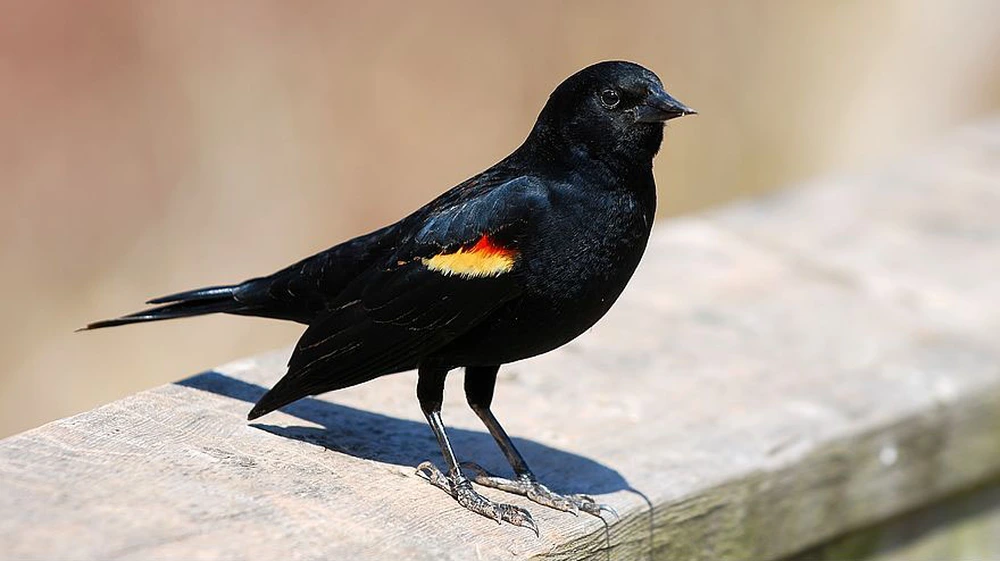
The Wildlife Society, March 20, 2020: "We always wanted to know, how does a host start to recognize a new threat?” said Matt Louder, lead author of the study published in Scientific Reports, who conducted the research as a postdoctoral researcher at the University of Illinois. Louder, who is now an ecologist at the environmental consulting firm H.T. Harvey and Associates, said they already knew some red-winged blackbirds (Agelaius phoeniceus) don’t attack the cowbirds when they are unfamiliar because they don’t share the same habitat or geographic area.
“It’s more of a recent evolutionary adaptive response to defend against cowbird parasitism,” he said.
But they also knew that when the redwings are exposed to cowbirds for a long time, their song may change and their aggressive behavior increase. They also knew the redwings can get aggressive toward male counterparts of the same species to defend their territory.
Brown-headed cowbirds (Molothrus ater) don’t make their own nests. Instead, the females set out to find other birds’ nests in which to lay their eggs, leaving it to the other birds to provide for their young. As a result, their chicks have to outcompete the birds that are already in that nest.
Louder and his colleagues wanted to find how the red-winged blackbirds’ genes may change along with their behavior when the brood parasites are present. But they wanted to study this without having to kill the birds to test their brains. “We’ve been looking at the brains in birds for a while, but that’s lethal, and it’s not fun,” Louder said. “When we look at wild birds, it’s kind of a big problem to kill the birds you want to study.”
Read the full article: Here
Read the Scientific Reports study, "Shared transcriptional responses to con- and heterospecific behavioral antagonists in a wild songbird."